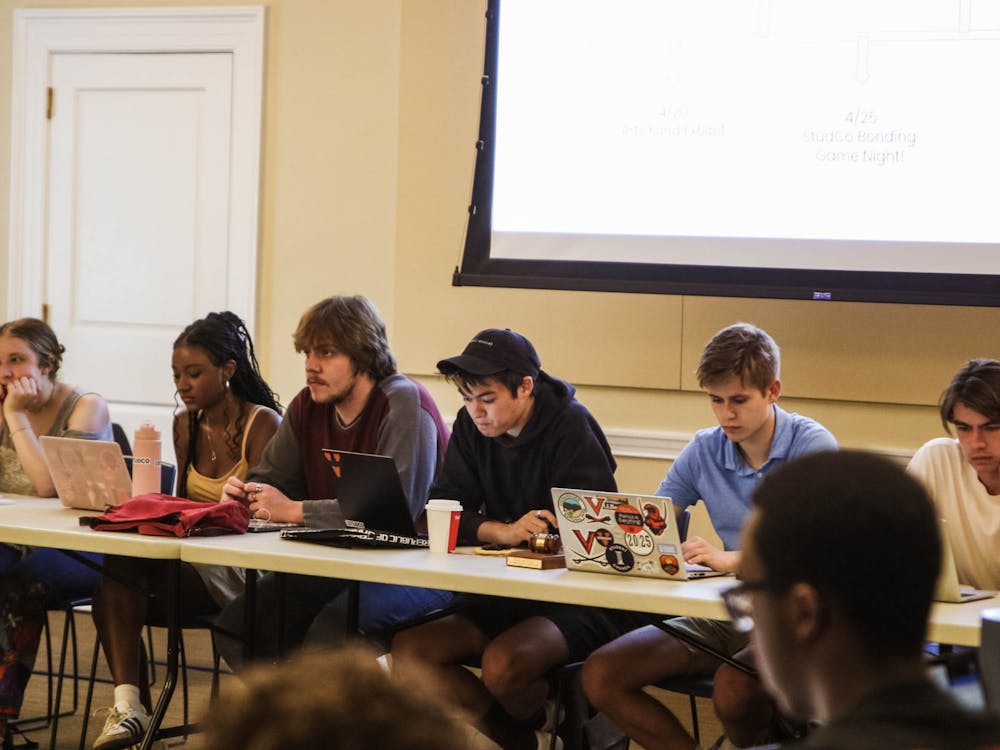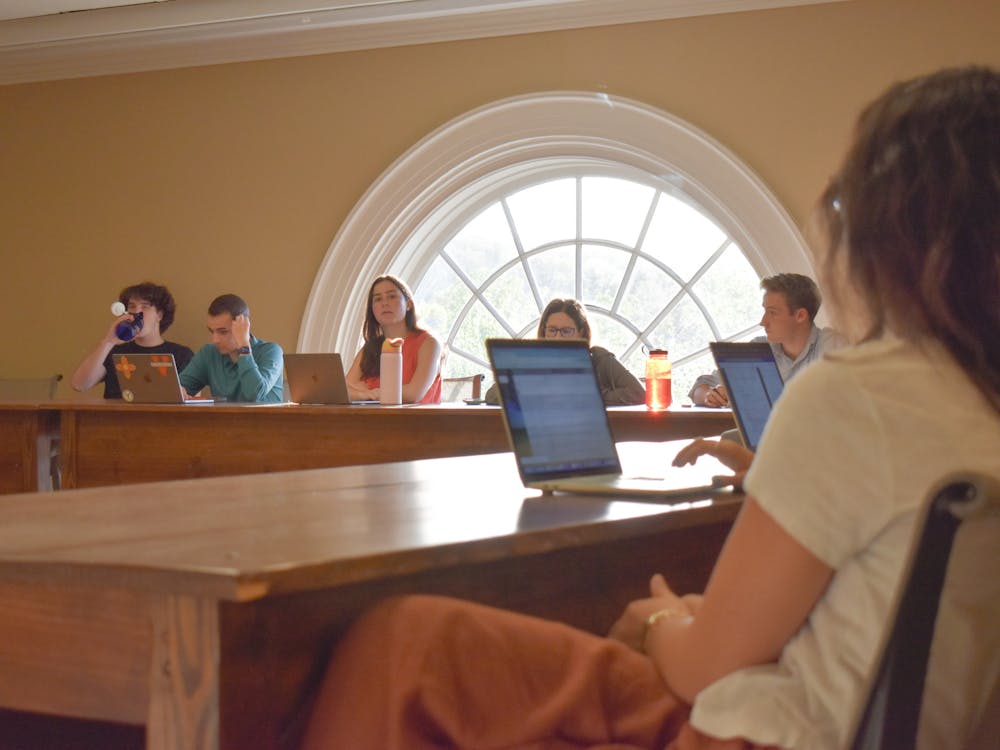The Senate discussed an amendment to a proposal that would change the way the Senate appoints their faculty representative to the Board of Visitors during a meeting Tuesday.
Currently, the Senate elects a single individual to be the faculty representative to the Board. Susan Kirk, senate chair and associate professor of medicine, is the current faculty representative to the Board. Faculty Senators themselves are elected by the University school they represent.
While other Board members are appointed by the governor, the Senate is permitted to elect one non-voting representative to sit on the Board. The change in representation was proposed after the Board told the Senate that it would not allow any senatorial representation if the Senate did not offer multiple candidate options for their consideration — giving the Board more control over the Senate’s already limited role in the Board representative selection process.
The proposed amendment would instead require the Senate to propose a slate of three candidates to the Board, who will then select one individual from the three to serve as the representative. The amendment has long been a topic of contested debate among senators.
In October, the University’s chapter of the American Association of University Professors submitted a letter urging the Senate to compromise with the Board on its request to change the way the faculty representative to the Board is selected. The letter outlined two possible compromises to address the representation issue — neither of which involve the adoption of the proposed amendment.
During Tuesday’s meeting, senators voted on whether to accept changes to the proposed amendment, which include a system of ranked voting. The amendment itself will not be voted on until the next Senate meeting in December.
Law Prof. Sarah Stewart Ware introduced the amended text. One change clarifies that the Senate would select a representative and then two alternates to present to the Board, instead of a more general slate of three potential representatives. Another change adds that nominees may be selected from current members of the Senate or from the body of faculty members eligible to serve on the Senate.
The largest addition to the amendment is a system of ranked voting for selecting preferred candidates to send to the Board.
“The candidates have to have a majority of positive votes,” Ware said. “That's how we ensure that anyone who ends up on the list, whether they're the representative or an alternate, has broad support.”
Ware said that the Board has previously indicated to her that they would accept the Senate’s first choice for the representative.
Education Prof. Brian Pusser said he thought the amendment was “convoluted” and included “elaborate layers” that weren’t necessary. Pusser asked for clarification about language which automatically includes the Chair of the Senate in the election for candidates to serve as representative. After a brief back and forth between Pusser and Jennings, Kirk asked that Senators “take a step back” before voting on the proposed change to the amendment.
“A lot of these amendments to the amendment are sort of permutations to try to satisfy concerns to allow this to move to a vote,” Kirk said. “Ultimately, that's what we need to do if we are interested in keeping a faculty representative at the Board.”
The amended text then went to a vote and passed with 42 yeas, 8 nays and 5 abstensions.
Senators used the remainder of the meeting to discuss the bylaw amendment itself, now with the amended text. As has been the case with previous meetings, senators debated the merits of the amendment at length.
Ware reiterated that the Board has said it would accept the Senate’s first choice for representative, and said she feels the proposed bylaw change keeps the Senate “in control” of their representative.
“I understand and share some discomfort with the BOV having a say here, and we could say no, but then I think we're opting out of participating in those deliberations,” Ware said. “And I sincerely believe that the University would be worse off for it.”
Prior to discussion on the proposed bylaw change, the Senate also voted in favor of a motion to reconsider — essentially holding a “redo” on a vote — for amendments to four bylaws.
The first changes the minimum of senators in each school to two. The second allows senate chairs to continue serving until the end of their term as past-chair with full voting privileges even if they are not re-elected as a general representative of their school. The third allows senators to have both general and specific proxies for voting, which would make voting by proxy easier. The final one changes the dates of Senate terms to align better with the faculty’s calendar.
The amendments will now be voted on again virtually.
As the meeting concluded, Jennings said she thinks it’s important to fully support faculty and students through the coming months, as the external investigation into the Nov. 13 shooting on Grounds commences.
The full Senate meets again Dec. 13.





